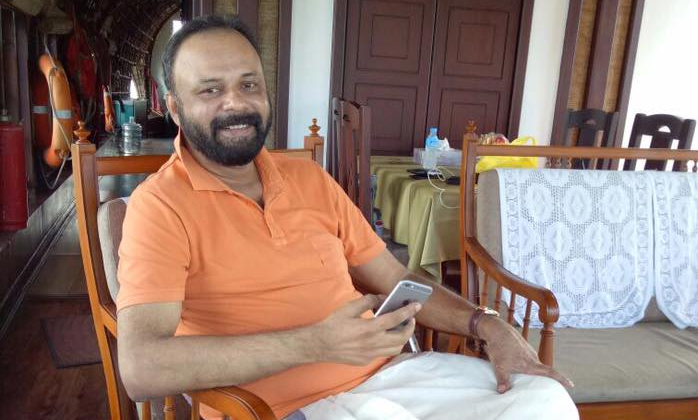Corona crisis teaches us the value of liquidity and cash reserves: Sajan Joseph

The tourism sector is about to undergo a transformation. There is bound to be significant restructuring especially in the hospitality sector and wage correction is expected at the top managerial levels. In an exclusive interview, Sajan Joseph, CEO and Co – Founder at BreakOut Hotels tells us the importance of keeping cash reserves. Liquidity is so important to tide over such a crisis, he feels. Excerpts:
Q: The hospitality industry is going through probably its worst ever phase in history. Did you think that the crisis would end up having such a devastating effect on the industry?
A: Who would have thought that we would go through such a crisis? We are going through a unique situation. Over a period of time, the tourism industry has moved to a structured format wherein we were able to have data and analysis in place. Now we are in an era in which we are able to quantify our matrix, for example, the number of travellers versus business volume and set the parameters accordingly. The tourism industry has gone through different kinds of hardships. For example, 30 years back it was the Kuwait war. Then we had the World Trade Centre attack, the 26/11 Mumbai incident, SAARS, H1N1, Ebola, bird flu etc. But these were largely localised and not on a global scale. Tsunami had affected a few countries.
Frankly speaking this situation is beyond our imagination. It is very hard to quantify the effect of the current pandemic. This current crisis has come out of the blue and on a global scale. After World War-II probably, this is the biggest disaster that has happened that can cause such devastation. This is not an industry specific disaster. This will have a cascading effect that can result in a recession.
Q: What kind of losses do you think the industry will end up with, for the year? A research consultancy has said that the hospitality industry may incur a loss of Rs 600 crore. And probably, that’s just a conservative estimate.
A: I am totally shocked to see that assessment by the so-called expert. Probably he must have forgotten to add a few zeroes. To give you a perspective of my small hotels – which have 18 rooms in some cases to 45-50 rooms in others – we estimate that this year’s turnover would be hit by a minimum of Rs 10-12 crores. Any hit on tourism spills over to other industries – right from from local shops to the hospitality industry. The Indian tourism and hospitality sector may lose somewhere around 1 lakh crore in my estimate. Anyway, it’s not Rs 600 crore – that’s for sure.
Q: What do you think are the steps that the industry can take to minimise the damage caused?
A: In this present situation, saving costs will become the top priority. Naturally there would be a revision of wages especially at the top levels. If we take Kerala for example, mid-sized resort top-tier managers are well paid. Some of the relatively less experienced ones are also well paid. For junior staff pay scale would more or less remain the same. I can see that there would be more emphasis on digital marketing rather than physical marketing which would be scaled down. To minimize the damage, government should help the industry. During boom time there will be over leveraging of resources but in the current situation one will have to be careful about capacity addition and avoid taking up more liabilities.
Q: What kind of support do you expect from the central and state governments?
A: Nobody seems to care about business or tourism as an industry though we make a lot of noise and blow our trumpet so much. The actual aid or relief package for the industry seems to be far away. This also has to partly do with our GST fiasco. We should pitch aggressively for a recovery road map.
Please give us a tax break for a year or provide us credit to do business in future. Government can recover the money from us at a later stage next year. We need break on the EMI payments on vehicle which are used for tourist purposes. That’ll be important for most of the single taxi owners and small agencies who have few vehicles. Give us a 10% onetime grant, for GST payment done for previous year. Some relief in terms of taxes would be of great help. As it is for the last one year, the economy has seen a downward curve.
Q: Can you please talk through the threat of job losses in the sector? How do you plan to address this issue?
A: Job losses will happen only if the units are not able to restart the process after this period. The government has to release the relief package soon. Not too sure about the volume of job losses; will have to wait and see.
Q: How long do you think it will take for the industry to revive the interest of the tourists? In what way can the industry win back the confidence of the guests?
A: Since this is a global pandemic, I think it’s going to take a little more time for people to regain the confidence. Sales will be flat for the next 6-8 months and by December-end there is likely to be some uptick. From there on, it would be probably a V-shaped recovery rather than a gradual one. Industry has limited options apart from pricing strategy. Imagine a country with poor health infrastructure. Those would really take a beating now. These people don’t want to die in a country where you can’t get a proper treatment. In other places tourists have died. As far as Kerala is concerned this particular response we are giving to foreign tourists – taking proper care of them – would be a big boost for us .
Q: Will the industry need to recalibrate the rooms rates and other charges, once the COVID-19 scare disappears? What changes do you expect to see?
A: This year certainly will see a lot of recalibration of room rates. The turnover will depend on the liability one has. Someone who has zero liability may suffer a cut down on his profits but will keep going and somebody who has liabilities will find it difficult. Many may have to sell or shut down the business. Hotels which are dependent on inbound tourists will have to recalculate their rates.
Q: The virus has put the spotlight on health and hygiene. From that perspective, the hospitality industry needs to gear up for the new standards. Please comment.
A: There would be certainly a big shift in the operationally. Kitchen hygiene and house-keeping will see greater attention. Technology is coming into place and we have to see where we can reduce human contact. What will be the future of spas for instance? We have to think about it. People would want lesser body to body contact. So I see a lot of automated check-ins, robots for room service etc. Those things may take a few years to happen. The basics will remain – like the offerings for customers. Changes will take place in the form of technology replacing human interventions wherever possible.
Q: What have been some of the biggest learnings of the industry from this episode? How do you plan to put into practice some of these learnings?
A: For me the biggest learning is over-leveraging of your resources. Business should not be done at any cost. Always be prepared for some kind of bolt from the blue like this. So we have to save for a rainy day, just like traditional business used to do earlier. We all need cash reserves. Liquid assets are important. There was a way in which we used to do business in older times. So it can be bonds, shares, bank deposits etc. Semi-liquid assets like gold, or fixed assets won’t come to your help in these kind of conditions. Liquidity is mandatory for any small or large business. Try this out. Save for a rainy day. I think there would be a completely different global scenario emerging in a way. May be China and Russia will go into Italy in a big way. Many countries will try to grow their tentacles and have their foothold in new regions. Maybe Cuba going into France, for example. How it will pan out, we will know in a year.



